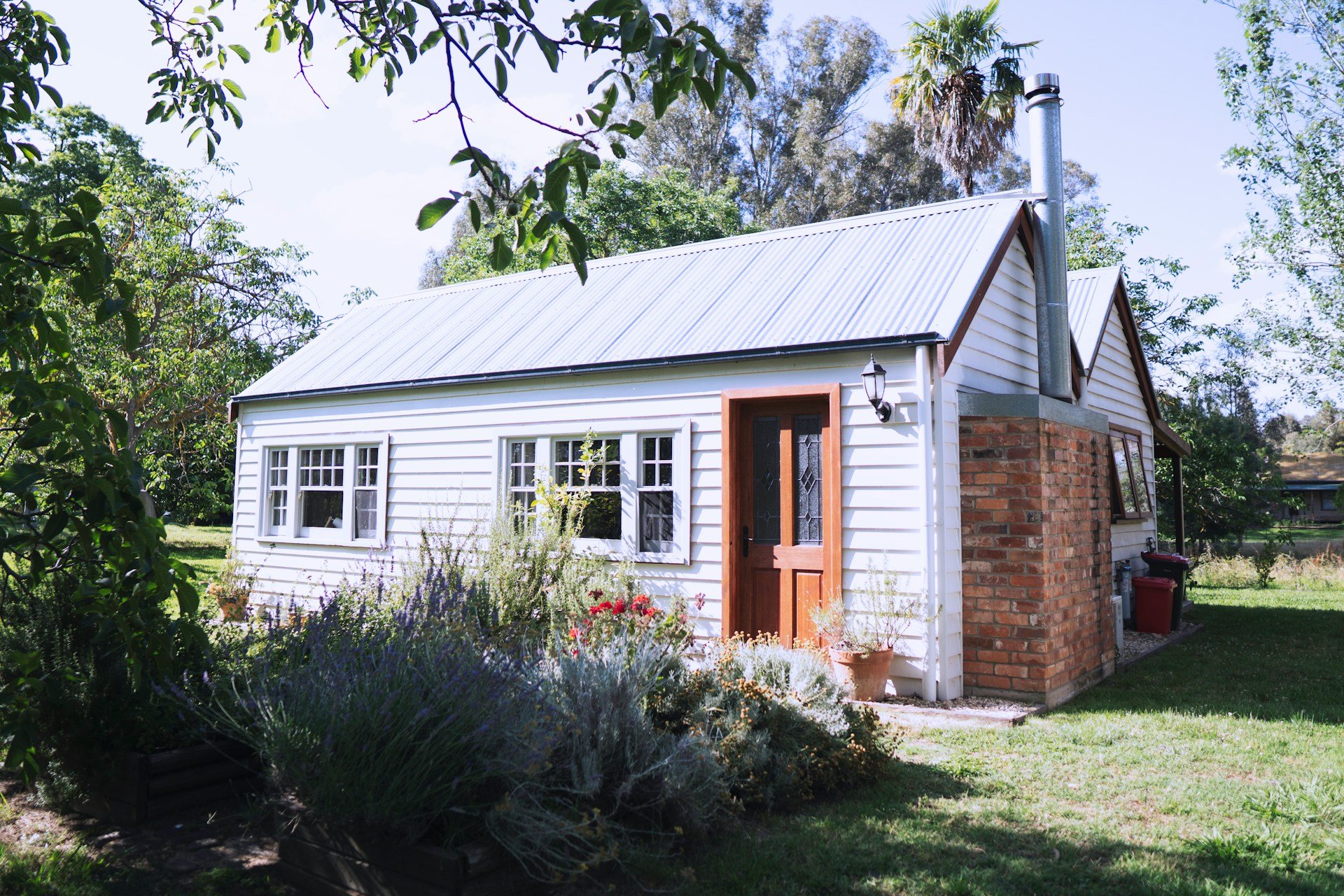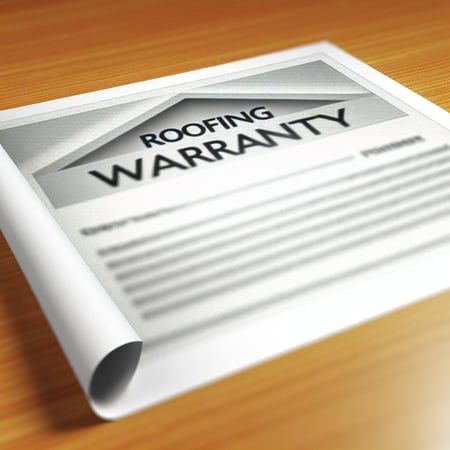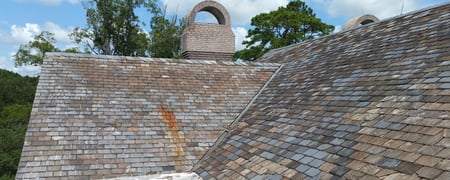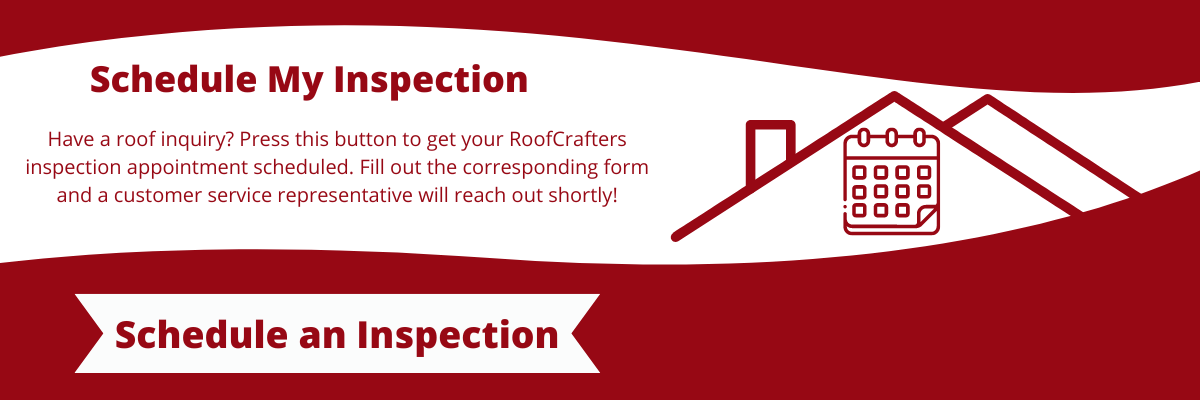Understanding Roofing Warranties: What's Covered and What's Not
April , 2024 | 10 min. read

When it comes to protecting your home and what’s most likely your largest investment, a roofing warranty can be a valuable asset. These warranties offer assurance that your roof is covered against certain defects and issues, providing peace of mind for all homeowners alike.
However, at RoofCrafters, we believe that understanding what is covered under a roofing warranty, and perhaps more importantly, what isn't, is crucial for making informed decisions and managing expectations.
So, stick around, and we'll explore the typical coverage provided by roofing warranties, including protection against material defects and workmanship errors. We'll also delve into common exclusions and limitations to help you navigate the fine print and ensure you have a clear understanding of your warranty's terms and conditions. Ready to get started?
What Is a Roofing Warranty?

A roofing warranty is essentially a contract between you and the roofing manufacturer or installer, outlining the terms and conditions of coverage for any defects or issues that may arise with your roof within a specified period. It serves as a guarantee that the materials used and the workmanship provided meet certain standards, and it typically offers protection against things like leaks, shingle damage, or other related problems.
In essence, it's a form of assurance that you're covered financially if your roof doesn't perform as expected during the warranty period. Roofing warranties can vary depending on factors like the type of materials used, the manufacturer, and the installer. Here are some common types:
Manufacturer's warranty: This warranty covers defects in the roofing materials themselves, such as shingle defects, under normal use conditions. It typically ranges from 20 to 50 years, depending on the quality of the materials.
Workmanship warranty: Provided by the roofing contractor, this warranty guarantees the quality of the installation work. It covers issues that arise due to errors in installation, such as leaks caused by improper sealing or flashing. Workmanship warranties usually last for a shorter period compared to manufacturer warranties, typically around 1 to 10 years.
Manufacturer warranty: Some manufacturers offer comprehensive warranties that cover both the materials and the installation. These warranties may provide added benefits and longer coverage periods compared to separate warranties.
Extended or upgraded warranty: Manufacturers or contractors may offer extended or upgraded warranties for an additional cost. These warranties may provide longer coverage periods, enhanced protection, or additional benefits beyond standard warranties.
Prorated vs. non-prorated warranty: Prorated warranties decrease in coverage value over time, meaning you receive less compensation for repairs as the warranty ages. Non-prorated warranties maintain their full coverage value throughout the warranty period
What’s Covered Under a Roofing Warranty?

Under a roofing warranty, you're typically covered for defects in the roofing materials and workmanship. This includes issues like defective shingles, tiles, or other roofing components, as well as problems arising from improper installation, such as leaks or structural deficiencies.
The warranty may also outline coverage for specific types of damage, such as wind or hail damage, depending on the terms and conditions set by the manufacturer or installer. It's important to review the warranty documentation carefully to understand exactly what is and isn't covered, as well as any limitations or exclusions that may apply.
What’s Not Covered?

While roofing warranties provide valuable coverage for many issues, certain things typically aren't covered. Here are some common exclusions:
Normal wear and tear: Warranties usually don't cover damage that occurs as a result of normal aging, weathering, or gradual deterioration over time.
Acts of nature: Damage caused by extreme weather events like hurricanes, tornadoes, earthquakes, or other natural disasters may not be covered under standard warranties.
Improper maintenance: If you neglect routine maintenance tasks like cleaning gutters, removing debris, or inspecting for damage, any resulting issues may not be covered.
Unauthorized repairs: Making unauthorized modifications or repairs to the roof without prior approval from the manufacturer or installer can void the warranty.
Damage from pests: Damage caused by pests, rodents, birds, or other animals may not be covered, as it's considered an external factor beyond the manufacturer's or installer's control.
Installation on non-approved structures: If the roofing materials are installed on structures or surfaces not approved by the manufacturer, any resulting issues may not be covered.
Failure to follow installation instructions: If the roofing materials are not installed according to the manufacturer's guidelines and instructions, the warranty may be voided. This is one of the many reasons it’s super important to choose the right roofer for your project!
Are Roofing Warranties Worth It?
Deciding whether a roofing warranty is worth it when it comes to your home depends on various factors. Firstly, it's important to assess the coverage offered by the warranty, considering both the extent of coverage and the duration. A comprehensive warranty that covers materials and workmanship for an extended period may offer greater value to you, especially if you're confident in the quality of the materials and the expertise of the installer.
Additionally, consider the resale value of your home; a transferable warranty can be an attractive selling point, enhancing buyer confidence in the condition of the roof. Don’t forget to factor in the peace of mind that comes with knowing your roof is protected against defects and unexpected repair costs, either.
Ultimately, the decision to invest in a roofing warranty depends on your priorities, budget, and level of risk tolerance, so it's essential to carefully review the terms and conditions of any warranty before making a decision. Consulting with a roofing contractor for a professional inspection can provide valuable guidance in selecting the best warranty option for your specific needs.
Understanding Roofing Warranties: What's Covered and What's Not
To wrap things up, a roofing warranty offers valuable protection against defects in materials and workmanship, providing homeowners with peace of mind and financial security. Covered under most warranties are issues such as defective roofing materials, installation errors, and certain types of damage within the specified coverage period.
However, it's important to note that not all potential roofing problems are covered, including normal wear and tear, damage from acts of nature, improper maintenance, and unauthorized repairs. Understanding the coverage and limitations of your roofing warranty is crucial for making informed decisions and ensuring that you're adequately protected against unforeseen issues.
By carefully reviewing the terms and conditions of the warranty, homeowners can confidently invest in the long-term integrity of their roofs while mitigating potential risks and expenses. RoofCrafters offers top-tier roofing warranties, so if you’re interested in superior coverage for your home, be sure to hit the “Schedule an Inspection” button down below!
My name is Cassie, and I’m the Content Manager here at RoofCrafters. I was born and raised in Chicago, Illinois, and made my way out to Florida post-college graduation. I’m incredibly passionate about writing and creating valuable content that helps others with the collaboration of my marketing team. When I’m not working, I enjoy shopping (a little too much), spending time at the beach, and reading!



